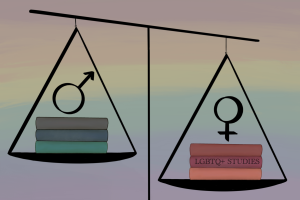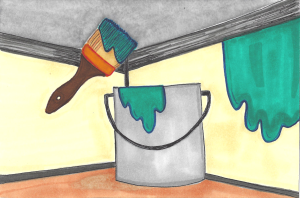Too few repercussions, too soon to return
March 30, 2023
Brutality, humiliation and ultimately — death. This is the legacy of the Texas Cowboys.
On Feb. 27, UT announced it would allow the spirit organization to return to campus on a provisional basis, alongside Pi Kappa Phi fraternity, as part of its Nine Dimensions of Successful Student Organizations Pilot Program. The Cowboys were suspended for six years in 2019 after a University investigation into their initiation retreat, prompted by the death of member Nicholas “Nicky” Cumberland, uncovered evidence of hazing. The investigation concluded that students at the retreat were subjected to physical brutality, animal cruelty and forced ingestion of unwanted substances.
This marked the second time the Cowboys were removed from campus for hazing offenses. Their first suspension occurred in 1995, after the death of pledge Gabe Higgins during that year’s initiation retreat. Despite this tragedy, it appears the Cowboys did not learn their lesson and continued to repeat the same dangerous hazing practices that ultimately resulted in another death and another suspension. Now, they’re coming back to campus.
Hazing is an institutional issue. It’s deeply rooted in the culture of spirit organizations and Greek life itself, making it undeniably difficult to change. While we appreciate the University’s attempt to disrupt this vicious cycle through its new program, we are appalled by its decision to allow the Cowboys to return to campus early.
While the Cowboys are certainly not the only organization with a history of hazing, they are representative of hazing’s deadliest consequences. Given the severity and repeated nature of their infractions, the Cowboys should consider themselves lucky to have only received a six-year suspension.
For their part, UT was slow to respond and unwilling to dole out appropriate punishment. University officials didn’t open an investigation until the Cumberland family asked for one, and they didn’t start interviewing students until nearly two months after the fall retreat. Although the investigation report recommended the Cowboys receive a “minimum six-year suspension,” this was later reduced to a maximum six-year suspension period. Furthermore, while the group was prohibited from recruiting new members during the investigation, they were never placed on social probation.
For the eight months following Nicky’s death and before their suspension, the Cowboys continued to party — unencumbered by the absence of substantive University action.
“I understand then-President Fenves at the time capitulated to demands made by influential alumni-donors in ‘hundreds’ of calls and emails to reduce the sanction period from six to four years,” Jay Maguire, hazing reform advocate and founder of Parents and Alumni for Student Safety, said in a statement. “It is disappointing and a major concern that outside influence, rather than the rules of the University, facts of the case and the expert judgment of other university officials, were allowed to reduce the penalty.”
Despite clear evidence of dangerous and illegal hazing practices, the University softened the Cowboys’ original punishment and now seeks to reduce it even further. The organization seems incapable of taking accountability or enacting lasting, institutional change. The Cowboys do not deserve the benefit of the doubt from the University or the UT community.
“In Nicky’s case, we saw that the Cowboy Alumni Association completely distanced themselves from having any duty or responsibility over the students,” said Shawn Cumberland, Nicky’s father. “My sense is that the alumni just want their own party to continue.”
Brian Antweil, president of the Texas Cowboys Alumni Association Board of Directors, said he is determined to end hazing in the organization and understands why they were suspended in 2019.
“We deserved to be suspended. Absolutely,” Antweil said.
Unfortunately, he seemed just as willing to divert from the central role hazing has played in the organization’s history.
“Why are you focused just on hazing?” Antweil said. “What about what we’ve done as an organization for the past 100 years on the positive side?”
Antweil’s defensiveness of the Cowboys’ reputation undermines his efforts to convince us that the organization seeks genuine accountability in its return. While it’s true the Cowboys have a long history on UT’s campus, their legacy will always be tarnished by the harm and violence they have perpetrated. These factors cannot be erased or negated by the organization’s positive contributions — something Antweil fails to understand. Given the Cowboys’ history and Antweil’s deflection, we’re not confident in their ability to enact institutional reform.
Katie McGee, UT’s executive director of Student Conduct and Academic Integrity, explained the intention behind the pilot program.
“Historically, universities have responded to student organization behavior by removing problematic organizations from campus; We have not invested as much time, effort and energy into helping those groups return,” McGee said. “What often happens without intervention is a group tends to revert to the same things they did before.”
Jenny Walker, the program’s director, said it addresses misconduct through a standardized curriculum with strategies tailored to each organization. This includes independently led self-reflection, educational workshops, ongoing University evaluations and “written deliverables,” intended to help organizations incorporate procedural changes. McGee explained that organizations that fail to complete the entire program will lose their provisional status.
The University’s attempt to address organizational hazing with its interventional program is a much-needed shift from its previously hands-off approach. We’re particularly glad that the provisional period isn’t time-based, allowing organizations to seek reform at their own pace rather than simply waiting out the clock. The program’s premise is admirable, but whether it will truly reform an organization with such a deep-rooted history of hazing as the Cowboys remains to be seen.
“I have a lot of faith in the nine dimension plan and the good people trying to end hazing in the administration, in the alumni and future student leadership of the Cowboys,” Maguire said. “However, if the Cowboys haven’t truly stamped out its long-standing hazing culture for good, this early reinstatement would be even more an affront to Nicky’s memory, and those who suffered the most — his friends and loved ones.”
The editorial board is composed of associate editors Justice DuBois, Faith DuFresne, Mihir Gokhale, Alyssa Ramos and editor-in-chief Megan Tran.















